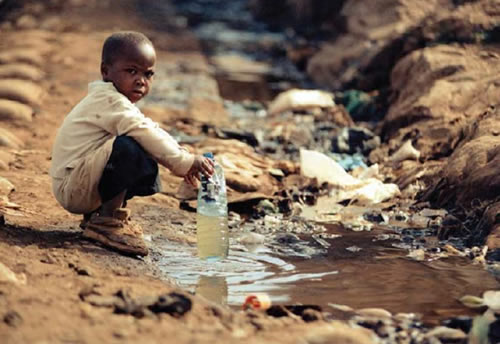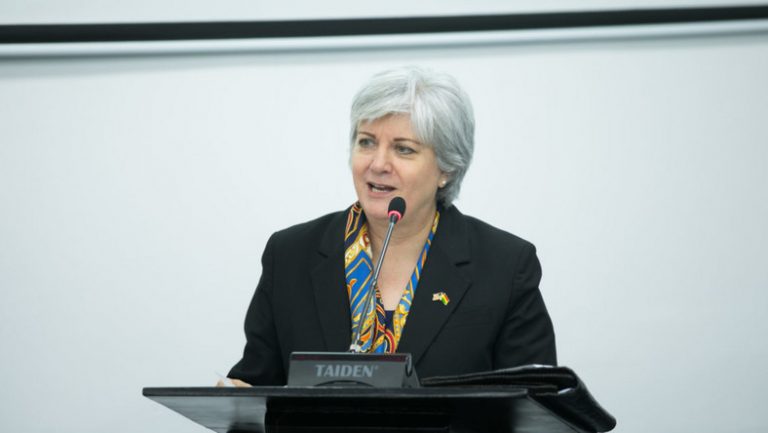How UNICEF, NBSSI Sanmark Project Is Improving Sanitation Facilities In Ghana
- Home
- How UNICEF, NBSSI Sanmark Project Is Improving Sanitation Facilities In Ghana

How UNICEF, NBSSI Sanmark Project Is Improving Sanitation Facilities In Ghana
 The United Nations International Children’s Emergency Fund (UNICEF) in collaboration with the Government of Ghana (GOG) in December 2018 implemented a Sanitation Programme known as the UNICEF-GOG WASH Programme.
The United Nations International Children’s Emergency Fund (UNICEF) in collaboration with the Government of Ghana (GOG) in December 2018 implemented a Sanitation Programme known as the UNICEF-GOG WASH Programme.
The aim of the programme was to reduce the spread of preventable waterborne diseases.
Sanitation Marketing was one of the components of the WASH Programme. It was derived from the third Pillar of the Rural Sanitation Model Strategy (RSMS), which is Demand.
The Programme is aimed at increasing sustained access to the use of improved sanitation and innovation, developed by local sanitation entrepreneurs among low-income populations in order to increase access to basic sanitation facilities by households.
To date, the Project through the National Board for Small Scale Industries (NBSSI) has supported a total of 13,366 Artisans.
Additionally, 265 Village Savings and Loans Association (VSLA) have been supported with various forms of Business Development Service (BDS) support and 177 Latrine Artisans have been trained, counselled and registered.
The Project is currently being implemented in five of the old ten regions which includes; Upper East, Upper West, Northern, Central and Volta.
Mrs. Kosi Yankey-Ayeh, the Executive Director of NBSSI, lauded UNICEF for its continuous support over the years to the Sanitation Marketing (Sanmark) Project, which has created multiple livelihoods and entrepreneurs within the sanitation space.
She said that the Project was in line with the NBSSI’s mandate to create jobs as well as provide the enabling environment for the Micro, Small and Medium Enterprises (MSMEs) Sector to thrive.
She stressed on the need for Non-Governmental Organisations (NGOs) and donor agencies to partner NBSSI to deliver effectively on its mandate and support Ghanaian entrepreneurs.
The Sanmark Project has focused on improving the formal and informal supply chains, products, and services to expand the delivery of affordable basic sanitation with the application of commercial marketing techniques.
Speaking in an interview with the Ghana News Agency, the Executive Director said, the Project had stimulated the interest and demand in the number of households investing their own resources to build and maintain an improved sanitation facility.
She further stated that they have been able to make the people to also understand that, venturing into sanitation business such as latrine construction was a good business that people could invest in, to help recycle the waste that the communities generated.
The Executive Director said through the BACs and other stakeholders, they have been able to educate the communities about the Business Partnership Meetings (BPM), which bring together the private sectors to dialogue on issues within the community.
Through the BPM Platforms provided, it has improved communication among stakeholders and it has enhanced Public Private Partnership (PPP) discussions and negotiations. Private business entrepreneurs now easily engage local district assemblies to deliver sanitation products and services through PPP arrangements.
Mrs. Yankey-Ayeh said close to 15,000 people around the five beneficiary regions have been trained in management and records keeping and income generating activities in alternative livelihood in producing sanitation products such as soap making, disinfectant among others.
She said some of the beneficiaries had already contributed to Ghana’s economy by employing people to work in their own established businesses through the training.
She therefore urged the people to understand that, the community generated waste can produce meaningful products for the country.
Source: GNA
Classic Ghana
Classic Ghana brings you into a fun world of arts, entertainment, fashion, beauty, photography, culture and all things in between. Let’s explore these together!


